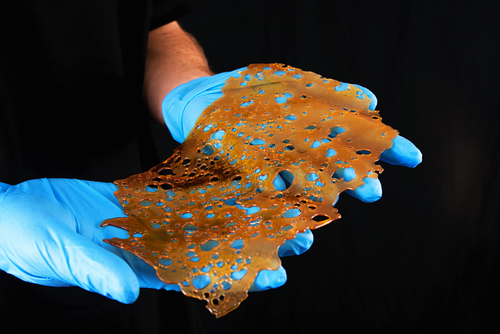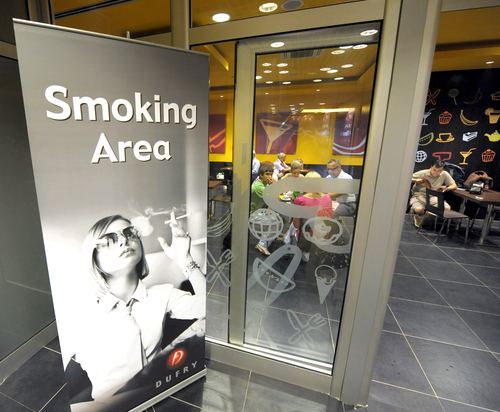Canadian cannabis entrepreneurs and investors could face a lifetime ban from the US over their involvement in the industry, US media report.
A senior US border official told news site Politico that Canadians in the burgeoning sector could be deemed inadmissible to the US.
Canada is a month away from becoming the first industrialised nation to legalise recreational cannabis use.
While some US states allow pot use, the drug remains federally illegal.
There have been concerns within Canada’s growing cannabis industry for months that they may face trouble crossing the border.
In July, a Vancouver businessman was banned from entering the US for life because he had investments in US marijuana companies.
Immigration lawyers have said they have heard similar stories from clients in the industry.
There have also been concerns that more Canadians will find themselves denied entry into the US if they admit to using marijuana, or face increased searches or interrogation by US officials.
Todd Owen, executive assistant commissioner for the Office of Field Operations, told Politico that border officials will question Canadians about their marijuana use if they have cause to do so.
“Our officers are not going to be asking everyone whether they have used marijuana, but if other questions lead there – or if there is a smell coming from the car, they might ask,” he said.
He also said that investors in the industry could also face a ban.
“We don’t recognise that as a legal business,” Mr Owen said.
US border officials can deny entry to people who admit to consuming pot or admit they plan to purchase or use marijuana in the US, even in a state where it is legal. People who have received bans still have the possibility of applying for a waiver from US Customs and Border Protection (CBP).
In a statement, CBP said that “working in or facilitating the proliferation of the legal marijuana industry in US states where it is deemed legal or Canada may affect a foreign national’s admissibility to the United States”.
Prime Minister Justin Trudeau’s government officials have maintained that despite the change in law, there is no indication marijuana legalisation will shift the US approach in how it deals with Canadians crossing the boundary, and confirmed that involvement in the industry could result in denied entry.
They say that despite one in eight Canadians using cannabis today, 400,000 people move between our two countries every day almost entirely without incident.
Jordan Sinclair, with Canopy Growth, a major medical marijuana supplier in Canada, told the BBC that while their employees have yet to face difficulties at the US-Canada border, the industry as a whole is seeking more clarity as to how cases will be consistently handled by border officials.
He also said many Canadians may be investors in cannabis stocks through major pension funds and mutual funds without being aware of it.
“There’s absolutely no way you can say if you’ve invested in the is industry you’re not going to be allowed into the United States,” he said.
Recreational cannabis will be available legally in Canada nationwide as of 17 October. Medical marijuana has been legal since 2001.
Eight US states – Colorado, Washington, Oregon, Alaska, Maine, Massachusetts, Nevada and California – have now legalised recreational and medicinal marijuana. But the drug remains a Schedule 1 controlled substance – alongside LSD, heroin, and ecstasy – under US federal law.
(71)





Leave A Reply